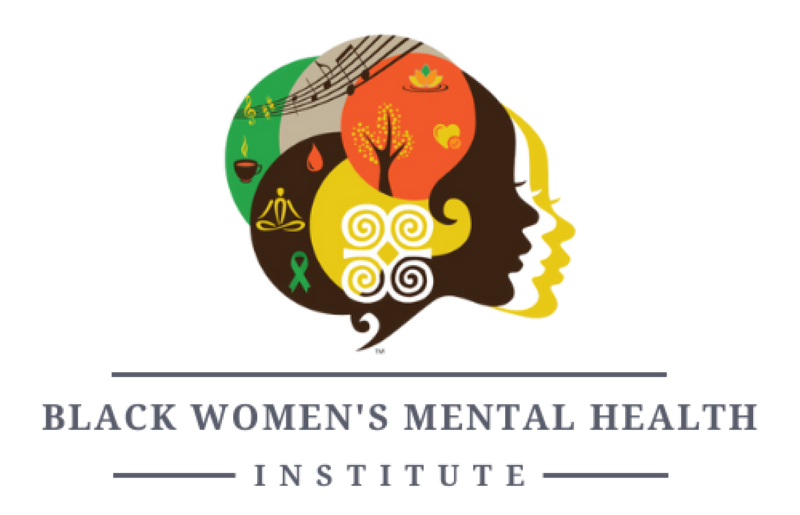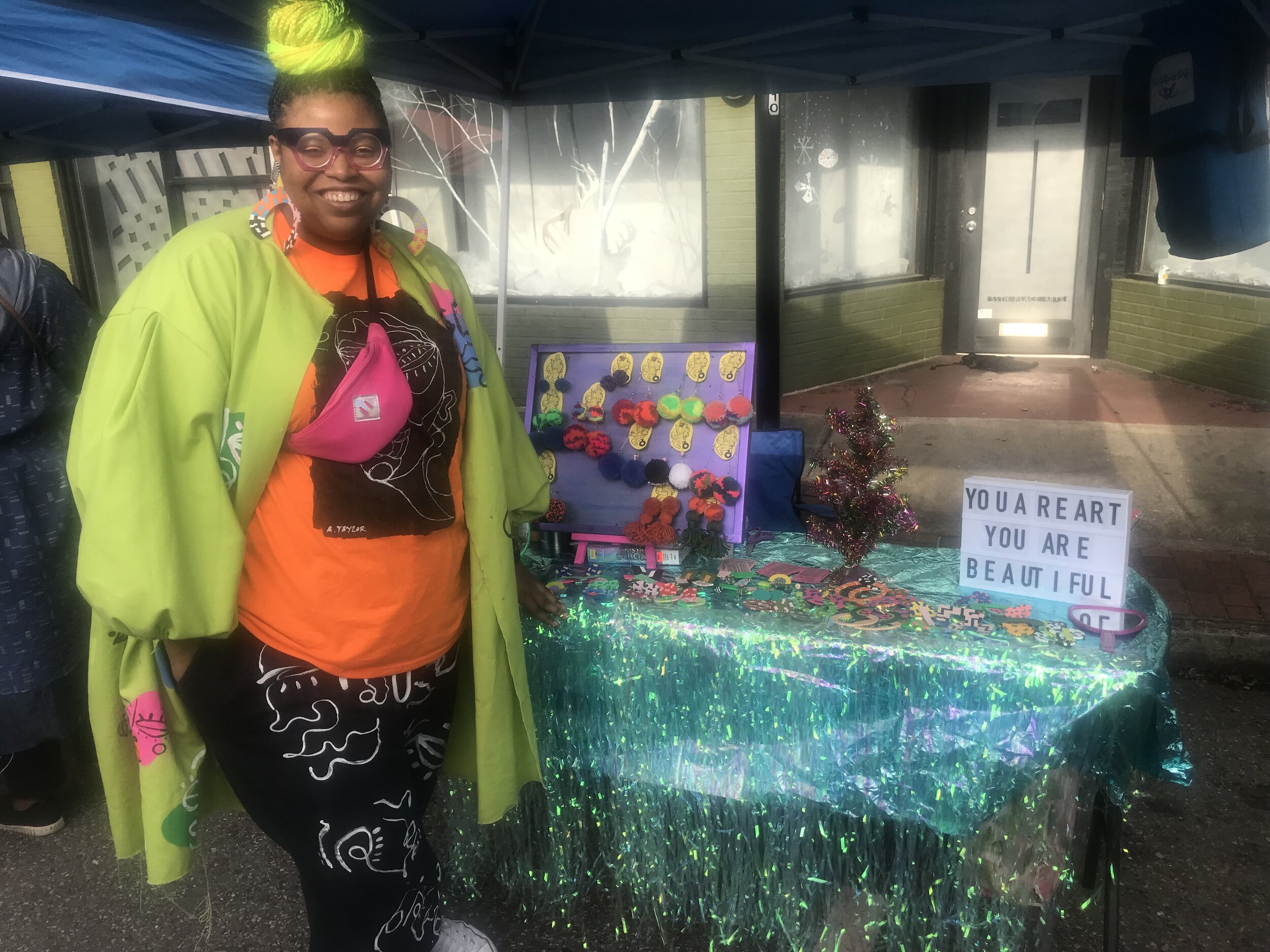Art, Expression and Mental Health - An Interview with Aaliyah Taylor
By Payton Williams
There is no debating the fact that there is a connection between art, expression and health. Whether it is music, visual arts, dance or written word, art has been proven to foster self discovery that benefits psychological well-being by reducing stress and creating avenues for processing complicated emotions. The professional field of mental health acknowledges this as evidence by the rise of music therapy, art therapy and dance therapy. Art and jewelry-maker, Aaliyah Taylor, has her own spin on how her art ties into her approach to mental health.
Where are you from?
I was born in Dunedin, FL, but raised entirely here in Birmingham, AL.
What is your area of expertise/career/business?
I would say that my area of expertise is art. I currently work as a children’s library technician, but I desire to pursue art as a career when the time allots it! Because art has so many sectors and because just saying “art” is so vague of a term; specifically, I’m a jewelry and fashion designer! I love creating statement pieces whether utilizing perler beads as my medium for jewelry, or upcycling and transforming thrifted clothes and thrown out home décor into an oversized jacket with statement sleeves!
Aaliyah Taylor at the Woodlawn Street Market in Birmingham, Alabama
How did you come about partaking in this area of expertise/career/business?
I’ve always been artistic in some way! But I didn’t really consider it a career until I was 21 years old. Creating jewelry and designing started out as an outlet and necessity for me, then it flourished into a small business!
What is your personal definition of mental health?
To me, mental health means the well-being of my mind, in the areas of my emotions, my behavior, how I relate to those around me, and in the decisions that I make.
What are your opinions on the progression of awareness for mental health? Do you think there are stigmas attached to mental health?
Steps have been made to raise awareness of mental health. Public service announcements, educational information are examples of basic steps taken to get the word out. Unfortunately, stigmas are still attached to mental health, such as a person is considered weak, or crazy if help is sought to treat for a mental problem.
Do you think women of color, specifically black women, struggle with mental health more prevalently? Why?
Yes. We still live under the rule: “What goes on at home, stays at home.” Black women are holding on to so many dark secrets of mothers, aunts, sisters, etc. along with the secrets they have. Molestation. Abuse. Addictions. Rejection. Abandonment. Violence. When they transition from childhood to womanhood, their bags are filled with all this stuff. They never learned how to cope with anger, sadness, hurt, pain, etc. As women they don’t know what to do. Some are able to fight through although they express those experiences upon their children or others. Others become overwhelmed and fall in the world of addiction to try to block or numb the pain/memories. Others become depressed and without any treatment or counseling, the journey begins as other mental health issues join the trip.
Aaliyah Taylor with Dr. Nadia Richardson, Founder of No More Martyrs
Have you ever struggled with your mental health? How did you manage to go about seeking help/treatment?
Yes, I have. During 2016-2017 things became overwhelming and I felt like I lost control. As a result, I began to experience panic attacks and had to go the emergency room a few times. On my last visit, the attending physician recommended I talk to someone as well as get a primary care physician. I was blessed to get a new doctor who was able to recognize the problem (anxiety) and would allow our visits to couple with “counseling”. It made a difference. In addition to medical help I began to turn to my faith in GOD. I sometimes become a little anxious, but I’ve learned to talk about it and pray.
If you did struggle with mental health, did that have an impact on your career/business/interests? Did it hinder those experiences? Did it add motivation and inspiration for those experiences? Both?
Yes, it was both! Initially, it was a hinderance. I was frustrated and overwhelmed all the time because I was trying to keep a smile on my face in public, even though privately, I was on the verge of tears and breakdowns because my reality was falling apart! But through taking off the façade and seeking help, I became motivated to press on forward; to not allow my presence reality to be the end of it all! It still gets hard sometimes to stay motivated when those emotions come back, but I know the steps to take now due to those past experiences.
What advice would you give a young black woman or woman of color in general who is struggling with her mental health?
My advice would be for her to choose to seek help. I know this is a such a cliché statement, but it’s the absolute truth. As women of color, it’s so easy for us to try to fix and handle things on our own, in our strength. We look at our tears, pain, and emotions as signs of weakness instead of recognizing that our minds and spirit is in dire need of release and understanding. Choose to seek help from professional counselors and therapists who can give you unbiased treatment. Not only that, find that person who trust who will listen to you and be there for you as support. And most importantly, your faith and trust in God. With all three options, I was able to see that it’s okay to not be strong and to cry out for help! Make that first step in making the choice to seek help: from God, from counselors and therapists, and your trusted support system.
What progress would you like to see going forward pertaining to mental health? Do you think there is hope for mental health to be better acknowledged in the future?
I would like to see more mental health clinics that would serve the under insured and uninsured. More awareness within the schools. We have teachers as well as students that are dealing with something considered as simple as coping and feeling anxious to having a diagnosis of bipolar disorder and not receiving treatment or inadequate treatment. The message needs to be made that you don’t have to keep this a secret. It’s okay to get help. You don’t have to go through this alone. For persons who are not dealing with mental health issues personally, they should be supportive and understanding. Mental Health does not equal Crazy.
Follow Aaliyah Taylor:
Etsy - www.etsy.com/shop/ExaltinginBeauty
Instagram - www.instagram.com/exaltinginbeauty



